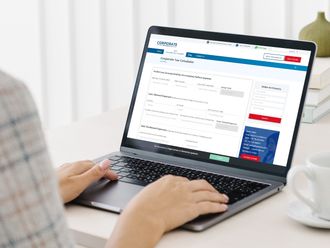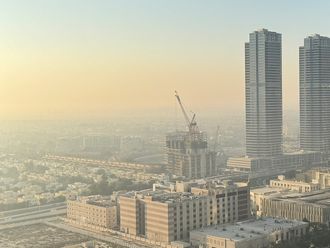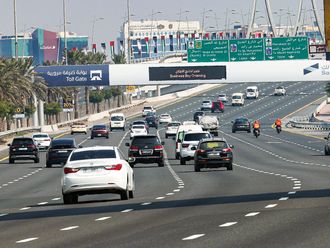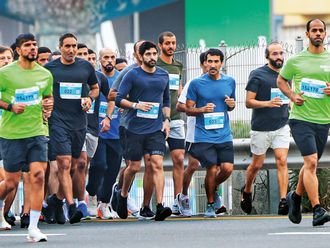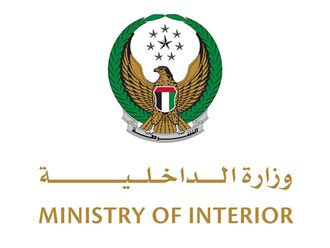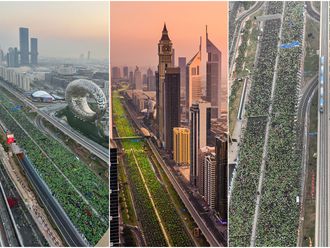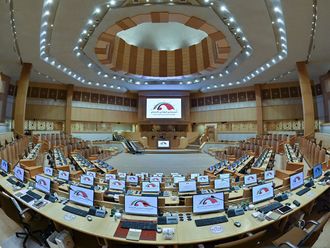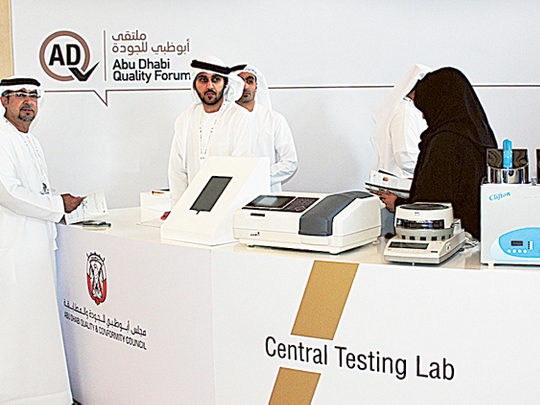
Abu Dhabi: A national reference and education institution to enable accurate measurements for manufacturing, research and environment sectors was on Sunday officially launched in the capital.
The Emirates Metrology Institute (EMI) will provide services for the calibration of equipment, as well as advice on metrology for a variety of sectors. Its aim is to ease manufacturing processes and ensure quality standards in the UAE, and it falls under the umbrella of the Abu Dhabi Quality and Conformity Council (QCC).
“Despite the increasing diversification and growth of industry and across the country, there has been a lack of capabilities to calibrate devices and ensure the required quality standards. As a result, many key sectors and firms were forced to send their equipment abroad,” Dr Hilal Al Kaabi, executive director at the EMI, told Gulf News.
“We seek to fill this gap, offering high-quality services and expert knowledge of calibration. And to ensure a culture of accuracy, the EMI is staffed primarily by Emiratis, who are being trained in their roles by international experts,” Dr Al Kaabi said.
He was speaking on the sidelines of the Abu Dhabi Quality Forum 2014, where Dr Ali Al Mansouri, chairman of the QCC, launched the EMI. The two-day forum kicked off in the capital on Sunday, and is expected to see the attendance of 800 government regulators and quality experts to discuss innovations in quality infrastructure and standards.
It is being held under the patronage of Shaikh Hazza Bin Zayed Al Nahyan, national security adviser and vice-president of the Abu Dhabi Executive Council, and is organised by the QCC, a council of regulators that aim to raise the quality of Abu Dhabi’s exports and locally-traded products.
In the past, calibration was often undertaken by companies’ internal laboratories, or through the Emirates Standardisation and Metrology Authority.
“The availability of these services was limited however, and there was no high-level reference authority to ensure the preciseness and accuracy in measurements that is essential for strategic industries such as aerospace, oil and gas, defence and nuclear power,” Dr Al Kaabi explained.
The EMI, which has been operational since the beginning of 2014, therefore has 10 laboratories in Abu Dhabi to offer these services to entities across the UAE. The laboratories are equipped to calibrate instruments used for the measurement of mass, volume, flow, temperature, humidity, length, force, pressure, torque, electrical quantities and time-frequency.
“We are also working to set up 27 other laboratories within the next three to five years,” Dr Al Kaabi said.
In the future, the institute also hopes to expand its capabilities into chemical metrology, nanometrology, photometry, radiometry, acoustics, radio frequency, microwave and hardness.
Meanwhile, officials at the quality forum called upon manufacturers to prioritise quality infrastructures.
“In Abu Dhabi, we recognise the need for quality standards, including testing capabilities and standards. Initially, these specifications and regulations have been set for consumer goods industries. But we have only scratched the surface so far,” said Hussain Al Katheeri, secretary general of the QCC.
He added that authorities are currently working to fine tune and implement quality guidelines for pharmaceuticals and toys, among others.
Wolfhart Hauser, chief executive officer of United Kindom-based inspection and certification firm Intertek, stressed that quality requirements have transformed over the last few years.
“Earlier, quality simply referred to product safety. Now, with the advance of technology and a growing middle class, we need to look at how smart various products are, their environmental impact, whether they adhere to marketing claims, and a host of other factors,” he said.
The expert added that the most important consideration for ensuring long-run quality standards in the UAE and Abu Dhabi is to coach Emiratis to implement these requirements.


